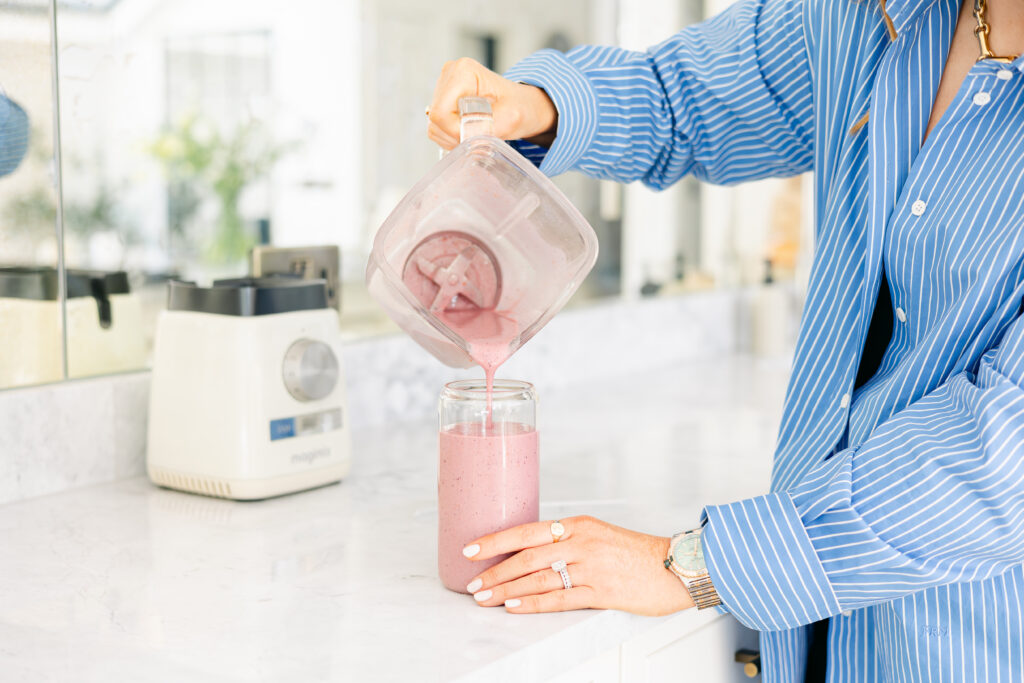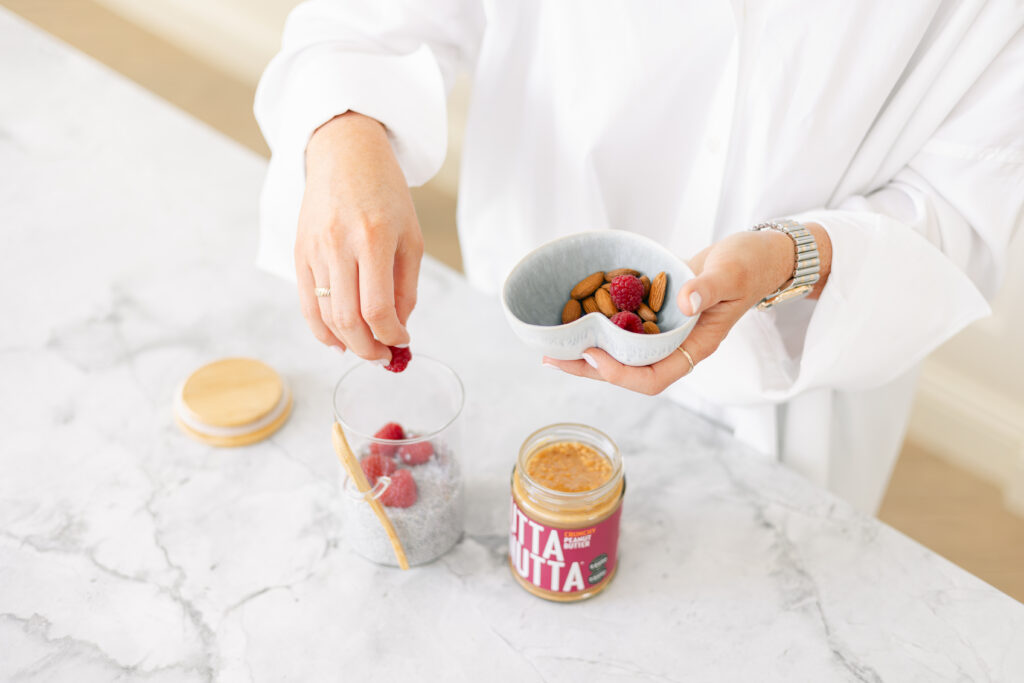08/08/2024
Whether you’re looking to lose weight, have more consistent energy levels, reduce cravings, or feel fuller for longer, increasing your protein intake at breakfast is key. Follow these tips to build the foundations of a protein-rich breakfast that will keep your hormones happy and balanced.

Why is Protein important for Hormone Health?
Hormone Production
Proteins play a crucial role in the production of hormones, which are chemical messengers that regulate various functions in the body, including metabolism, mood, and reproductive health. Amino acids, the building blocks of proteins, are essential for the synthesis of hormones. Here’s how protein intake influences specific hormones:
- Insulin: This hormone, produced by the pancreas, helps regulate blood sugar levels. Consuming protein can help modulate insulin release, preventing spikes and crashes in blood sugar that can disrupt hormonal balance.
- Thyroid Hormones (T3 and T4): These hormones, produced by the thyroid gland, regulate metabolism. Adequate protein intake is necessary for the production and conversion of thyroid hormones, ensuring proper metabolic function.
- Sex Hormones (Oestrogen and Progesterone): These hormones are crucial for reproductive health and menstrual cycle regulation. Proteins provide the necessary precursors for the synthesis of these hormones. For example, the amino acid tyrosine is involved in the production of oestrogen and progesterone.
- Growth Hormone: This hormone, produced by the pituitary gland, is important for growth, cell repair, and metabolism. Protein intake stimulates the secretion of growth hormone, supporting tissue repair and muscle growth.
Blood Sugar Balance
Maintaining stable blood sugar levels is vital for hormonal health. When you consume a protein-rich breakfast, it helps slow down the absorption of sugar into the bloodstream. This steady release of energy prevents the highs and lows associated with carbohydrate-heavy breakfasts, which can lead to insulin resistance over time. Insulin resistance is a significant risk factor for conditions like polycystic ovary syndrome (PCOS) and can adversely affect fertility.

Satiety and Cravings
Protein is known for its ability to promote satiety, the feeling of fullness. Starting your day with a protein-rich meal can help control hunger throughout the day, reducing the likelihood of unhealthy snacking and overeating. This is particularly important for hormonal balance because frequent consumption of sugary or processed snacks can lead to weight gain and insulin resistance, both of which can disrupt hormone levels.
Aim for at least 20g of protein at breakfast
Here are some examples of protein sources to help you boost your protein consumption at breakfast. While foods highest in protein tend to come from animal sources, you can combine different protein sources to help up your overall amount.
- Eggs: 2 eggs = 12g protein, 1 egg white = 4g protein
- Smoked salmon: ½ pack/50g = 12g protein
- Chicken sausages: 100g = 18g protein
- Greek yogurt: 150g = 15g protein
- Cottage cheese: 100g = 12g protein
- Chia seeds: 2 tbsp = 4g protein
- Tofu: 100g = 8g protein

How to build a balanced protein-rich breakfast
To support our hormones, prioritise protein, but don’t forget about carbohydrates and fats! Creating a balanced breakfast that includes protein, healthy fats, fibre and complex carbohydrates is my go-to template for a hormone supportive breakfast. Combining these macronutrients is essential for several reasons. Carbohydrates are essential for energy production and our bodies main fuel source. Fibre supports digestive health, regulates blood sugar and aids satiety. Whilst healthy fats are vital for hormone production and overall cellular function.
Here are some ideas:
- 3 egg omelette with spinach, peppers, mushrooms and once slice toast.
- Scrambled eggs with smoked salmon and rye bread.
- Sourdough with poached eggs, smashed avocado, crumbled feta and a handful of rocket.
- Overnight oats with chia seeds, greek yogurt, topped with berries and nut butter.
- Chia pudding, topped with kiwi, nuts and seeds.
- Smoothie with protein powder, spinach, banana, berries and almond butter.
- Sweet potato hash with chicken sausages.
- Quinoa breakfast bowl with vegetables and eggs.
Summary
Building a balanced protein-rich breakfast can have a profound impact on your hormonal health. By combining protein with healthy fats, fibre, and carbohydrates, you create a meal that supports blood sugar levels, promotes satiety, aids hormone production and encourages healthy digestion. Start your day right and keep your hormones happy by following these guidelines for a nourishing and satisfying breakfast.
*Jenny Peers-Jones and the content provided are not intended to treat, diagnose, cure or prevent any disease. All material on jennypeers-jonesnutrition.co.uk is provided for educational purposes only. Always seek the advice of your doctor and/ or another qualified healthcare provider for any questions you have regarding a medical condition, before undertaking any diet, supplement, exercise or other health-related programs.
Leave a Reply